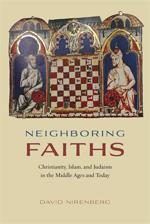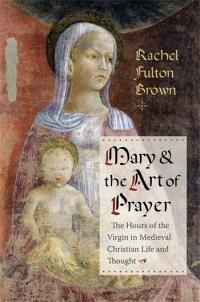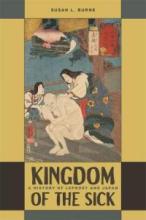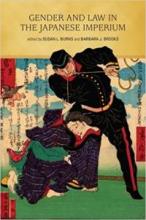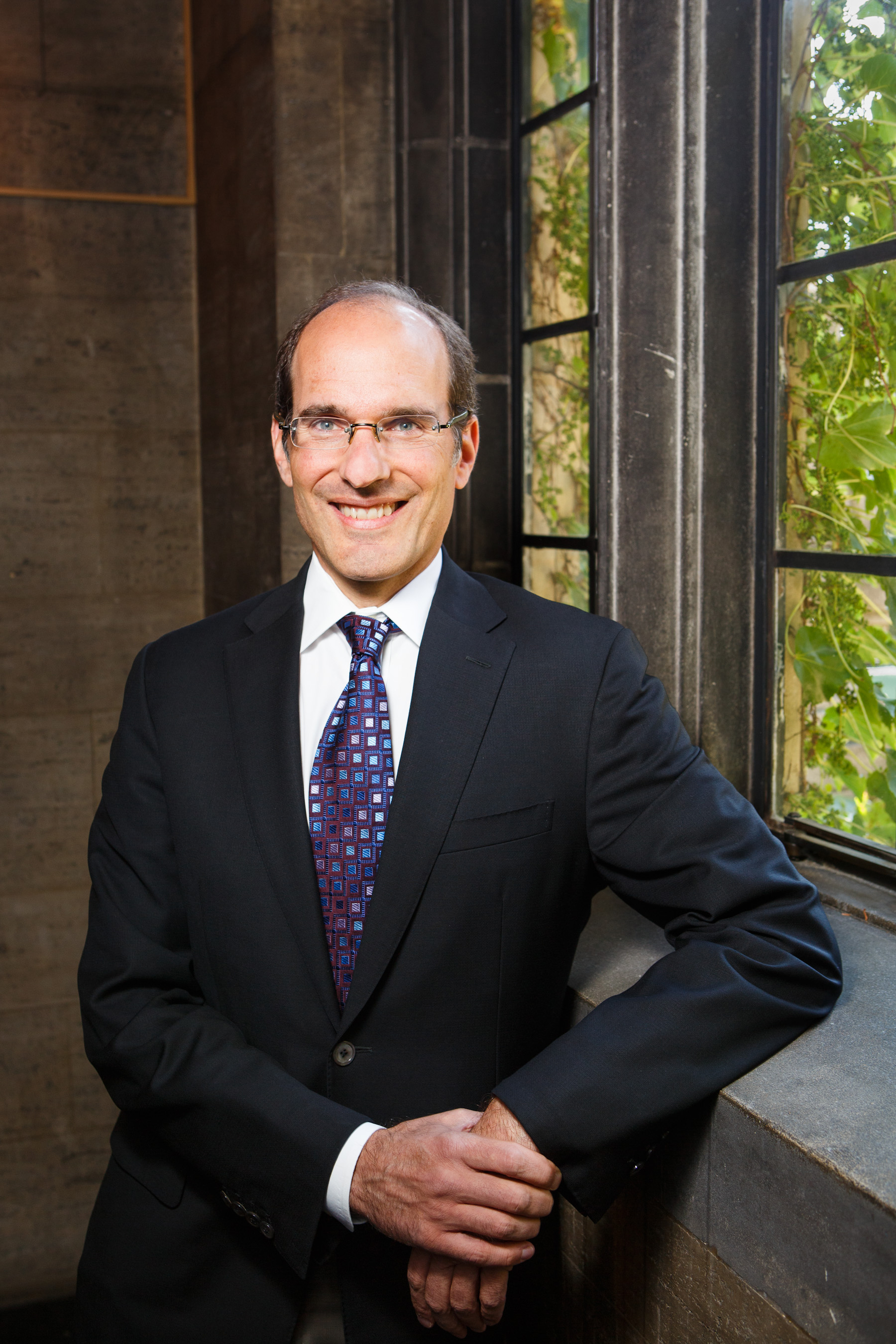
Princeton University, PhD '92
BIOGRAPHY
I have spent most of my intellectual life shuttling between the micro and the macro, trying to understand how life and ideas shape and are shaped by each other. One stream of my work has approached these questions through religion, focusing on the ways in which Jewish, Christian, and Islamic cultures constitute themselves by interrelating with or thinking about each other. My first book, Communities of Violence: Persecution of Minorities in the Middle Ages, studied social interaction between the three groups within the context of Spain and France in order to understand the role of violence in shaping the possibilities for coexistence. In later projects I explored the work that “Judaism,” “Christianity,” and “Islam” do as figures in each other’s thought. One product of that approach, focused on art history, was (jointly with Herb Kessler) Judaism and Christian Art: Aesthetic Anxieties from the Catacombs to Colonialism (2011). In Anti-Judaism: The Western Tradition (2013), I attempted to apply the methodology to a very longue durée, studying the work done by pagan, Christian, Muslim, and secular thinking about Jews and Judaism in the history of ideas. More or less simultaneously in Neighboring Faiths: Christianity, Islam, and Judaism Medieval and Modern (2014), I tried to bring the social into conversation with the hermeneutic, in order to show how, in multireligious societies, interactions between lived experiences and conceptual categories shape how adherents of all three religions perceive themselves and each other. Then in Aesthetic Theology and Its Enemies: Judaism in Christian Painting, Poetry, and Politics (2015), I focused on how thinking about Judaism shaped the ways in which Christian cultures could imagine the possibilities and limits of community and communication.
Beginning with my book Anti-Judaism, which stretched from ancient Egypt to the twentieth century in order to try to understand the work done by a family of concepts across history, I have tried to cultivate a new approach to the “long history” of ideas. My most recent book, Uncountable: A Philosophical History of Number and Humanity from Antiquity to the Present, written in collaboration with Ricardo Nirenberg (a mathematician who happens also to be my father), follows this path as well. It explores the long history of the various types of sameness that underpin the claims of different forms of knowledge (from poetry and dreams, to monotheism, math, and physics), using these to think critically about the powers and the limits of the sciences and the humanities. I am now at work on the long history of yet another family of concepts, namely the inter-connected history of race and religion from the Neolithic to the present.
Recent Research / Recent Publications
Coauthored with Ricardo Nirenberg. Uncountable: A Philosophical History of Number and Humanity from Antiquity to the Present. Chicago, IL: University of Chicago Press, 2021.
Communities of Violence: Persecution of Minorities in the Middle Ages. Princeton, NJ: Princeton University Press, twentieth-anniversary edition with new preface, 2016.
Aesthetic Theology and Its Enemies: Judaism in Christian Painting, Poetry, and Politics. Lebanon, NH: University Press of New England, 2015.
Neighboring Faiths: Christianity, Islam, and Judaism in the Middle Ages and Today. Chicago, IL: University of Chicago Press, 2014.
- Review of Neighboring Faiths and Anti-Judaism by Carlos Fraenkel, "We Hear and We Disobey," London Review of Books (May 21, 2015): 31–34.
Anti-Judaism: The Western Tradition. New York: W.W. Norton, 2013.
- Review by Michael Walzer, "Imaginary Jews," New York Review of Books (Mar. 20, 2014)
- Review by Anthony Grafton, "The Strange History of Antisemitism in Western Culture," New Republic (Oct. 11, 2013)
Discusses book on US Holocaust Memorial Museum podcast
Awarded Ralph Waldo Emerson Award
Communities of Violence: Persecution of Minorities in the Middle Ages. Princeton, NJ: Princeton University Press, 1996; paperback edition, 1998. Spanish translation: Comunidades de Violencia: Persecución de minorías en la edad media. Peninsula Editorial, 2001; French translation: Violence et minorités au Moyen Age. Paris: Presses Universitaires de France, 2001.
- 2000 John Nicholas Brown Prize, Medieval Academy of America
- 1998 Herbert Baxter Adams Prize, American Historical Association
- 1998 Best First Book in Iberian History, Society for Spanish and Portuguese Historical Studies
- 1996 Premio del Rey Prize, American Historical Association
- Coedited with María Elena Martínez and Max Hering Torres. Race and Blood in Spain and Colonial Latin America. LIT-Verlag, 2012.
- Coedited with Herbert Kessler. Judaism and Christian Art: Aesthetic Anxieties from the Catacombs to Colonialism. Philadelphia: University of Pennsylvania Press, 2011.
- "The Impresarios of Trent: The Long and Frightening History of the Blood Libel." Nation (November 16, 2020).
- "What Is Islam? (What Is Christianity? What Is Judaism?)." Raritan 35 (Fall 2016): 1–14.
- "Love." In What Reason Promises: Essays on Reason, Nature, and History, edited by Wendy Doniger, Peter Galison, and Susan Neiman, 46–54. Berlin: De Gruyter, 2016.
- With Leonardo Capezzone. "Religions of Love: Judaism, Christianity, Islam." In The Oxford Handbook of the Abrahamic Religions, edited by Adam Silverstein and Guy G. Stroumsa, 518–535. Oxford: Oxford University Press, 2015.
- "Power and Piety: Is the Promotion of Violence Inherent to Any Religion?" Nation (Apr. 29, 2015).
- "Posthumous Love in Judaism." In Love After Death: Concepts of Posthumous Love in Medieval and Early Modern Europe, edited by Bernhard Jussen and Ramie Targoff, 55–70. Berlin: De Gruyter, 2015.
- "'Judaism' as Political Concept: Toward a Critique of Political Theology." Representations 128 (Fall 2014): 1–29.
- "'Judaism,' 'Islam,' and the Dangers of Knowledge in Christian Culture, with Special Attention to the Case of King Alfonso X, 'the Wise,' of Castile." In Mapping Knowledge: Cross-Pollination in Late Antiquity and the Middle Ages. Arabica Veritas, vol. I, edited by C. Burnett and P. Mantas-España, 253–76. Cordoba: Oriens Academica, 2014.
- "Sibling Rivalries, Scriptural Communities: What Medieval History Can and Cannot Teach Us about Relations between Judaism, Christianity, and Islam." In Faithful Narratives, edited by Andrea Sterk and Nina Caputo, 63–82. Ithaca, NY: Cornell University Press, 2014.
- "Christian Love, Jewish 'Privacy,' and Medieval Kingship." In Center and Periphery: Studies on Power in the Medieval World, edited by Katherine L. Jansen, G. Geltner, and Anne E. Lester, 25–37. Leiden: Brill, 2013.
- Coauthored with Ricardo Nirenberg. "Badiou's Number: A Critique of Mathematical Ontology." Critical Inquiry 37, no. 4 (2011): 583–614. Response by Alain Badiou and a reply by us, "Critical Response." Critical Inquiry 38 (2012): 362–87.
- "From Cairo to Cordoba." Nation (June 1, 2011).
- "When Philosophy Mattered." New Republic (Feb. 3, 2011): 39–43.
- "Shakespeare's Jewish Questions." Renaissance Drama (2010): 77–113.
- "Double Game: Maimonides in his World." London Review of Books (Sept. 23, 2010): 31–32.
- "Anti-Zionist Demography." Dissent (Spr. 2010): 103–9.
- Interviewed on anti-Semitism for The New Yorker, 2020
- Writes op-ed on Facebook's hate speech policy, Tablet Magazine, 2019
- Appointed interim dean of the Divinity School, 2018
- Appointed executive vice provost
- Quoted in an Atlantic article on Charlottesville and anti-Semitism
- Awarded 2017 Historikerpreis der Stadt Münsters for his body of work
- Delivers the University of Chicago 527th Convocation Address [video, 12 minutes]
- Awarded Doctor of Philosophy, Honoris Causa, University of Haifa, 2016
- Elected to the American Academy of Arts and Sciences
- Publishes Aesthetic Theology and Its Enemies: Judaism in Christian Painting, Poetry, and Politics (Brandeis, 2015)
- Delivers 2015 Harper Lecture on Religion and Violence [video, 79 minutes]
- Publishes Neighboring Faiths: Christianity, Islam, and Judaism in the Middle Ages and Today (Chicago, 2014).
- Appointed a Fellow of the Medieval Academy of America
- Appointed Dean of the Social Sciences Division
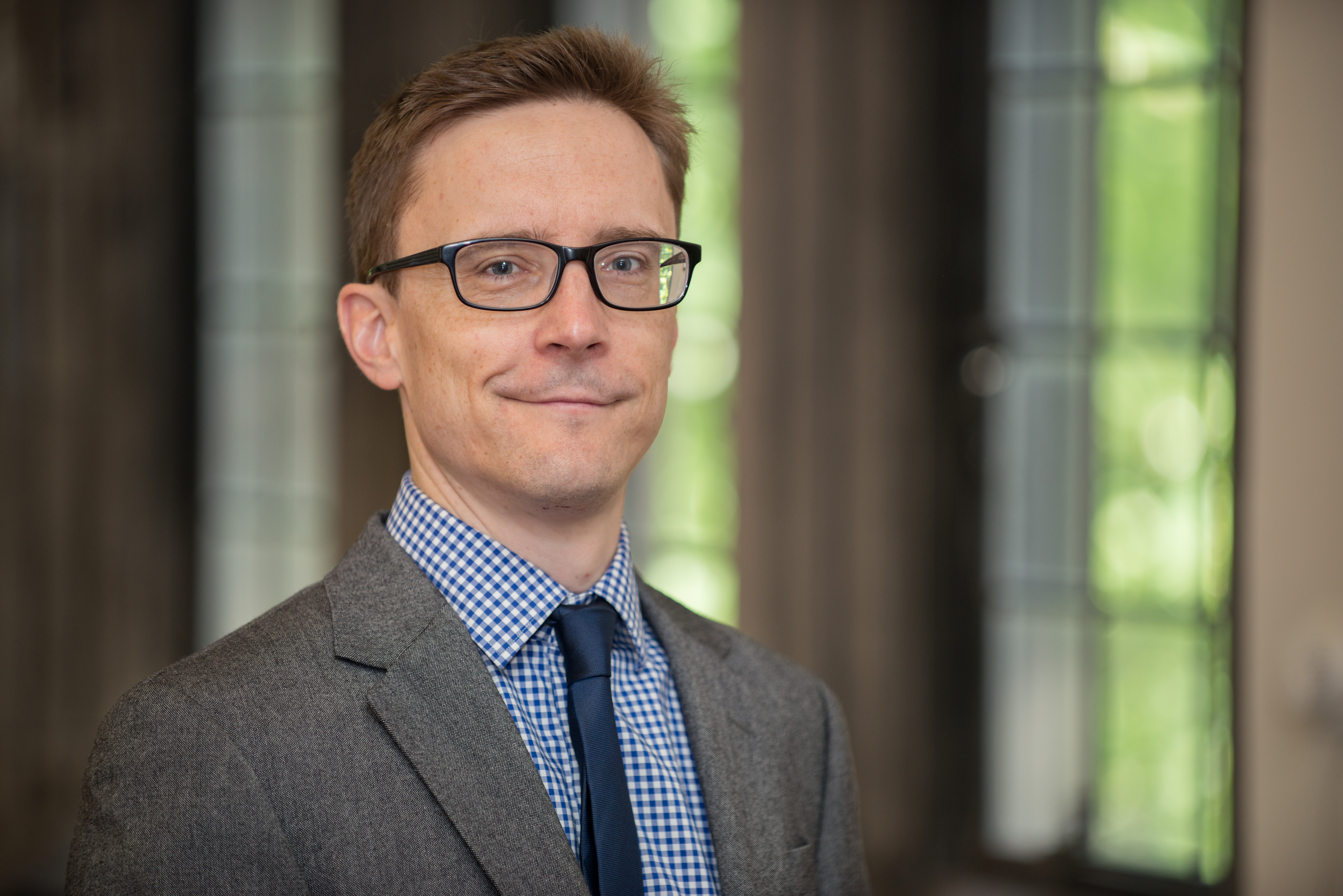
University of Cambridge, PhD '06
BIOGRAPHY
I am an historian of modern social and political thought. I focus in particular on American and British traditions of social thought. My earliest research examined how theories of knowledge drove important changes in the human sciences during the twentieth century. Much of this work found its way into my first book, Working Knowledge: Making the Human Sciences from Parsons to Kuhn (Cambridge, MA: Harvard University Press, 2012), which was awarded the Gladstone Prize by the Royal Historical Society, UK.
I am currently writing a book about the relations between economics and social thought from the late nineteenth century to the present. The aim of this project is to explain the ways in which modern economics has shaped – whether by attraction or repulsion – the development of social theory and political thought. The major topics addressed by the book include the diffusion of rational choice theory across the human sciences, and the reception of Enlightenment thought about politics and markets.
I also work on issues in the history of modern philosophy, American history and the history of the Cold War.
Before joining the University of Chicago, I held positions at the University of Cambridge (2011-2017) and Queen Mary, University of London (2007-2011).
Recent Research / Recent Publications
-
ed., with Gary Gerstle, States of Exception in American History (Chicago: University of Chicago Press, 2020)
-
ed., with James T. Kloppenberg et al, The Worlds of American Intellectual History (New York: Oxford University Press, 2016)
-
ed., with Duncan Bell, Uncertain Empire: American History and the Idea of the Cold War (New York: Oxford University Press, 2012)
-
Working Knowledge: Making the Human Sciences from Parsons to Kuhn (Cambridge, MA: Harvard University Press, 2012)
-
'The Many Faces of Analytic Philosophy' in The Cambridge History of Modern European Thought, ed. Warren Breckman and Peter Gordon (Cambridge: Cambridge University Press, 2019), 176-199
-
'The Intensification of Social Forms: Economy and Culture in the Thought of Clifford Geertz', Critical Historical Studies (Fall 2018): 237-266
-
'Pain, Analytical Philosophy, and American Intellectual History', in The Worlds of American Intellectual History, ed. Joel Isaac, James T. Kloppenberg, Michael O'Brien, and Jennifer Ratner-Rosenhagen (New York: Oxford University Press, 2016), 202-217
-
'Donald Davidson and the Analytic Revolution in American Philosophy, 1940-1970', Historical Journal 56 (2013), 757-79
-
'Missing Links: W. V. Quine, the Making of "Two Dogmas," and the Analytic Roots of Postanalytic Philosophy', History of European Ideas 37 (2011), 267-79
-
'Tool Shock: Technique and Epistemology in the Postwar Social Sciences', History of Political Economy 42 (Annual Supplement 2010), 133-64
-
'Theorist at Work: Talcott Parsons and the Carnegie Project on Theory, 1949-1951', Journal of the History of Ideas 71 (2010), 287-311
-
'Tangled Loops: Theory, History and the Human Sciences in Modern America', Modern Intellectual History 6 (2009), 397-424
-
'The Human Sciences in Cold War America', Historical Journal 50 (2007), 725-46
-
'W. V. Quine and the Origins of Analytic Philosophy in the United States', Modern Intellectual History 2 (2005), 205-34
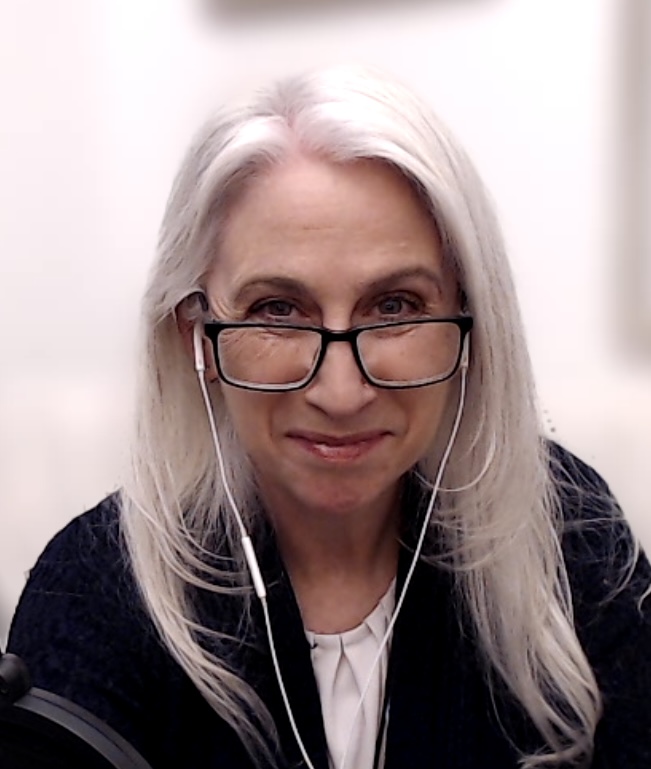
Columbia University, PhD '94
BIOGRAPHY
My research and teaching focus on the intellectual and cultural history of Europe in the Middle Ages, with particular emphasis on the history of Christianity in the Latin West. I also offer courses on the history of European civilization and the works of J. R. R. Tolkien. My ongoing research addresses the interplay between intellect and empathy in the practical development of a discipline of prayer. My immediate purpose is to find a way to describe prayer as a practical art, that is, as a practice that takes skill and uses particular tools. My ultimate goal is to develop an understanding of the meaning and importance of worship as itself a creative act.
In my research I have paid special attention to the medieval devotion to the Virgin Mary. Why? Because Mary is more than just the Virgin whom Christians believe gave birth to the Son of God. She is the key that unlocks the medieval era itself. As I argue in the proposal for the Companion to the Christian Tradition that I have been invited to edit for Brill, to understand the place of Mary in medieval Christian devotion, it is not enough to study her as an art historian or a musicologist or a literary scholar or an historian or a theologian. To understand Mary as medieval Christians imagined her, one has to understand everything. She is there in the art and the architecture and the music. She is there in the literature and the liturgy and the liberal arts. She is there in the most elevated expressions of human imagination and in the humblest prayers for help. She is there in the politics and in the ideals of marriage, in battle cries and in pleas for mercy for the oppressed. Medieval Christianity is inconceivable without her, and yet, since the Reformation, Christians have struggled to explain why she should have been there at all. “All the steam in the world,” Bostonian Henry Adams (d. 1918) once opined, “could not, like the Virgin, build Chartres.” He might better have said, “build Christendom.”
In my first book, From Judgment to Passion: Devotion to Christ and the Virgin Mary, 800–1200 (Columbia, 2002), my primary goal was to find a way to make a hitherto obscure tradition of scriptural commentary readable as a form of devotion. For my second book, Mary and the Art of Prayer: The Hours of the Virgin in Medieval Christian Life and Thought (Columbia, 2017), I wanted to take this exercise further and find a way to help modern academic and lay readers imagine seeing the world as a medieval Christian might, from within, while at the same time making clear what it took for medieval Christians to construct that worldview. My sources for this second project were similar to those that I used for my first book: liturgical chants and prayers, commentaries on scripture, stories told about the miracles of the Virgin, sculpted and painted images, all situated in the biographies of their authors and the larger transformations of the society and tradition in which they were produced. My question was likewise similar: what did it mean for medieval Christians to pray to the Virgin Mary as the Mother of God and to Jesus Christ as her Son? But my goal was somewhat more ambitious: not just to show modern readers how medieval Christians talked about Mary and her Son, but to give modern readers some sense of what it was like to see the world through this devotional and theological frame.
I apply a similar methodology in my teaching. Why do I teach medieval European history? Because story matters. More particularly: because the stories with which we fill our imaginations shape our souls as well as our actions in the world. All of the courses that I teach begin from this premise: that the study of history is valuable not just for the skills that it imparts, but also for its content because it is the content of its stories that gives shape to our understanding of ourselves and our world. The humanities as a whole have become heavily invested in the intersection of identity and practice over the past thirty or so years, but history has always been about identity—about our particular identities as individuals and about our shared identity as human beings. It is the practice of telling ourselves, as human beings, who we are.
In all my courses, I focus on helping students become aware of the way in which stories frame the way they think about the past, while at the same time encouraging them to read the sources I assign for the questions that they were originally intended to answer; that is, to look for the frames within which they were originally written. In my two-quarter section of Chicago’s core sequence “History of European Civilization,” this exercise takes the form of particular questions that I have the students ask about each text that we read: What does the author tell us (explicitly or implicitly) about why he or she was writing? Why was the author’s subject so important that he or she considered it worth writing about? What does the author’s interest in the subject tell us about the historical circumstances in which he or she was writing? In my undergraduate and graduate courses in medieval history and the history of Christianity, my methodology is the same, if less explicit: to think ourselves inside the frame(s) from within which our sources were written so as to attempt to understand why their authors made the arguments that they did in the way that they did and thereby become aware of the limitations of our own frames.
Such an exercise is necessarily always contingent and provisional, subject to revision as we read further into the sources, become aware of new elements in the story, and encounter assumptions for which we have no interpretive frame. My own teacher Caroline Walker Bynum coined the phrase “history in the comic mode” to describe this process. As Bruce Holsinger and I explained in the afterword to the Festschrift that we co-edited in her honor,
History in the comic mode challenges us as scholars (and storytellers) to recognize not only our endings, that is, our answers—carefully articulated on the basis of a proper weighting of the evidence in context, balanced against all the slippages and silences of the sources themselves—as constructions, but also our beginnings; the punch line is only funny, the answer is only satisfying, if we accept the premise of the joke...
As with all comedy, such an openness [to our own contingency] involves risks—we cannot be sure of our audience’s response any more than we can of our answers—and yet, we would insist, to refuse to take these risks out of otherwise commendable concerns for objectivity or methodological applicability, never mind contemporary political urgency, is less a mark of serious scholarly rigor than it is a tragic refusal to join in the fun.
I want my students to join in the fun, even as it challenges them to take risks, even as it threatens to overturn everything they have previously learned about the past—or about themselves.
Recent Research / Recent Publications
La Vierge Marie et le “Cantique des cantiques” au Moyen Âge. French translation by Jésus Marie Joseph. Honoré Champion, 2022.
Mary and the Art of Prayer: The Hours of the Virgin in Medieval Christian Life and Thought. New York: Columbia University Press, 2017.
Mary in the Scriptures: The Unexpurgated Tradition. The Theotokos Lectures in Theology 7. Milwaukee: Marquette University Press, 2014.
“Mary in the Scriptures as Container and Way: Henry Adams and the Virgin of Chartres.” In Performing the Sacred: Christian Representation and the Arts, ed. Carla M. Bino and Corinna Ricasoli, pp. 74-86. Leiden: Brill, 2023.
“Prayer.” In The Oxford Handbook of Christian Monasticism, ed. Bernice M. Kaczynski, pp. 317-32. Oxford: Oxford University Press, 2020.
“Mary and the Body of God: Servasanctus of Faenza and the Psalter of Creaton.” In Medieval Franciscan Approaches to the Virgin Mary, ed. Steven J. McMichael. Leiden: E.J. Brill, 2019.
"Mary in Medieval Prayer: The Hours of the Virgin." In The Oxford Handbook of Mary, ed. Chris Maunder, pp. 338-51. Oxford: Oxford University Press, 2019.
"Exegesis, Mimesis, and the Voice of Christ in Francis of Assisi's Office of the Passion." The Mediaeval Journal 4, no. 2 (2014): 39–62.
"What's in a Psalm? British Library, MS Arundel 60 and the Stuff of Prayer." In Rome and Religion in the Medieval World: Studies in Honor of Thomas F.X. Noble, edited by Valerie L. Garver and Owen M. Phelan, 235–52. Farnham, Surrey: Ashgate, 2014.
"Hildegard of Bingen’s Theology of Revelation." In From Knowledge to Beatitude: St. Victor, Twelfth-Century Scholars, and Beyond. Essays in Honor of Grover A. Zinn, Jr., edited by E. Ann Matter and Lesley Smith. Notre Dame: University of Notre Dame Press, 2013.
"Anselm and Praying with the Saints." In Experiments in Empathy: The Middle Ages, edited by Karl F. Morrison and Rudolph M. Bell. Turnhout: Brepols, 2013.
"Oratio." In The Cambridge Companion to Christian Mysticism, edited by Patricia Z. Beckman and Amy Hollywood. Cambridge: Cambridge University Press, 2012.
"My Psalter, My Self, or How to Get a Grip on the Office according to Jan Mombaer (d.c. 1501)." Spiritus: A Journal of Christian Spirituality 12, no. 1 (2012): 76–106.
“Three-in-One: Making God in Twelfth-Century Liturgy, Theology and Devotion.” In European Transformations, 950–1200, edited by Thomas F. X. Noble and John Van Engen, 468–97. Notre Dame: University of Notre Dame Press, 2012.
"Mary." In Christianity in Western Europe c. 1000–c.1500, edited by Miri Rubin and Walter Simons, 283–96. Cambridge: Cambridge University Press, 2009.
"Praying by Numbers." Studies in Medieval and Renaissance History, 3rd series 4 (2007): 195–250.
History in the Comic Mode: Medieval Communities and the Matter of Person, coedited with Bruce Holsinger. New York: Columbia University Press, 2007.
"Praying with Anselm at Admont: A Meditation on Practice." Speculum 81, no. 3 (July 2006): 700–733.
"'Taste and See That the Lord is Sweet' (Ps. 33:9): The Flavor of God in the Monastic West." The Journal of Religion 86, no. 2 (April 2006): 169–204.
"The Virgin in the Garden, or Why Flowers Make Better Prayers." Spiritus: A Journal of Christian Spirituality 4 (Spring 2004): 1–23.
From Judgment to Passion: Devotion to Christ and the Virgin Mary, 800–1200. New York: Columbia University Press, 2002.
-
Journal of the History of Ideas' Morris D. Forkosch Prize for the best book in intellectual history published in 2002
-
2006 John Nicholas Brown Prize by the Medieval Academy of America
"'Quae est ista quae ascendit sicut aurora consurgens?': The Song of Songs as the Historia for the Office of the Assumption." Mediaeval Studies 60 (1998): 55–122.
"Mimetic Devotion, Marian Exegesis, and the Historical Sense of the Song of Songs." Viator 27 (1996): 86–116.
-
Dr. Fulton Brown's Tolkien Class Celebrated as a "Favorite UChicago Course"
-
Interviewed about Draco Alchemicus on Bounding Into Comics
-
Discusses Holy Fools in film, Fox Valley Film Critics, February 2020 [video, 29 mins]
-
"Stephen McInerney speaks with Rachel Fulton Brown," The Ramsay Centre Podcast, August 19, 2019
-
"Reclaiming the Middle Ages from Contemporary Politics," The Australian, August 10, 2019
-
Delivers talk, "Is Academia Good for the Soul?," Society For Academic Freedom and Scholarship, August 2019 [video, 76 mins]
-
Delivers the first Chris and John Furedy Lecture, Society for Academic Freedom and Society, Canada, May 3, 2019 [video, 79 mins]
-
"Episode 1407: Does Study of the Middle Ages Have a 'White Supremacy' Problem,” The Tom Woods Show, May 16, 2019
-
"In the Academic Sandbox: A skirmish in Medieval Studies," First Things, June 2019
-
"Medieval Scholars Joust With White Nationalists. And One Another," New York Times, May 5, 2019
-
"It's Her Cathedral," Catholic Herald, Apr. 18, 2019
-
"Fire in the Cathedral," First Things, Apr. 17, 2019
-
"How the Christchurch Shooter Seduced the Media With His Evil," American Greatness, Mar. 18, 2019
-
"One Gutsy Medievalist," National Review, Sept. 14, 2018
-
Delivers talk, "Training the Soul in Virtue: Lessons from the West," National Association of Scholars conference [video, 38 mins]
-
Publishes Mary and the Art of Prayer: The Hours of the Virgin in Medieval Christian Life and Thought (Columbia, 2017)

Princeton University, PhD '95
BIOGRAPHY
I am a professor in History, the College, and the Law School. My most recent book, White Fright: The Sexual Panic at the Heart of America's Racist History (Basic Book, 2020), concerns race, sex, and the civil rights movement from emancipation to the present. My next most recent book is Building the American Republic, Volume 2: A Narrative History From 1877 (Chicago, 2018). Both volumes are free in e-book form.
My work has revolved around the relationship between race, sex, and politics in the post-Emancipation South. My first book, Before Jim Crow: The Politics of Race in Postemancipation Virginia (North Carolina, 2000), analyzed the conditions that facilitated and, ultimately, undid interracial democracy in the post–Civil War South. An edited collection with Glenda E. Gilmore and Bryant Simon, Jumpin' Jim Crow: Southern Politics from Civil War to Civil Rights (Princeton, 2000), continued the theme of African American resistance to white domination from Reconstruction through the 1950s. A third book, The Age of Jim Crow: A Norton Documentary History (Norton, 2008), examines the creation and dissolution of legal segregation in America through primary sources.
My awards include fellowships from the American Council of Learned Societies, the American Academy in Berlin, the Alphonse Fletcher Foundation, and the John Simon Guggenheim Memorial Foundation.
Recent Research / Recent Publications
- White Fright: The Sexual Panic at the Heart of America's Racist History. New York: Basic Book, 2020.
- Building the American Republic, Volume 2: A Narrative History from 1877. Chicago: University of Chicago, 2018.
- "The Theology of Unionism and Anti-Unionism." Labor: Studies in Working-Class History of the Americas 14, no. 1 (Mar. 2017): 83–85.
- Senior editor for legal history, Oxford Research Encyclopedias: American History, edited by Jon Butler. Oxford: Oxford University Press, 2013–present.
- "Is Marriage a Civil Right? The Politics of Intimacy in the Jim Crow Era." In The Folly of Jim Crow: Rethinking the Segregated South, edited by Stephanie Cole and Natalie J. Ring, 176–208. College Station: Texas A&M Press, 2012.
- "The Civil Rights Movement in the South." In Speaking Out With Many Voices: Documenting American Activism in the 1960s and 1970s, edited by Heather Ann Thompson. Upper Saddle River, NJ: Prentiss Hall, 2008.
- "Fighting Hitler and Jim Crow: African Americans and World War II." The Berlin Journal (Fall 2005): 27–30.
- "The Theology of Massive Resistance." In Massive Resistance, dited by Clive Webb, 151–80. New York: Oxford University Press, 2005.
- "Sex, Segregation, and the Sacred After Brown." Journal of American History 91, no. 1 (June 2004): 119–44.
- "The Congress and White Supremacy, 1860s-1920s." In The American Congress: The Building of Democracy, edited by Julian E. Zelizer, 250–67. Boston: Houghton-Mifflin, 2004.
- "The Sexual Politics of Race in WWII America." In Mobilizing the Movement, edited by Kevin Kruse and Stephen Tuck. New York: Oxford University Press, 2011.Before Jim Crow: The Politics of Race in Post-Emancipation Virginia. Chapel Hill: University of North Carolina Press, 2000.
- "The Limits of Liberalism in the New South: The Politics of Race, Sex, and Patronage in Virginia" and "Introduction." In Jumpin' Jim Crow: Southern Politics from Civil War to Civil Rights, edited by Jane Dailey, Glenda Gilmore, and Bryant Simon, 3-6, 88–114. Princeton, NJ: Princeton University Press, 2000.
- "Deference and Violence in the Postbellum Urban South: Manners and Massacres in Danville, Virginia." Journal of Southern History 63 (August 1997): 53–90.
- Laura Kipnis's Unwanted Advances: Sexual Paranoia Comes to Campus, Christian Century (Oct. 9, 2017).
- Timothy B. Tyson's Blood Done Sign My Name. Chicago Tribune (May 30, 2004).
- Steven Hahn's A Nation Under Our Feet. Chicago Tribune (February 22, 2004).
- "The Last Time We Fought a Preemptive War in the Middle East." Huffington Post (Dec. 1, 2017).
- "Gerrymandering Is a Threat to Our Republic." Huffington Post (Oct. 3, 2017).
- "Remembering our KKK Past." Huffington Post (Sept. 12, 2017).
- "The Confederate General Who Was Erased from History." Huffington Post (Aug. 21, 2017).
- Discusses the American South's geographic boundaries with Business Insider
- Published Building the American Republic, Volume 2: A Narrative History from 1877
- Discusses Confederate Statues on NPR with James Grossman
- Named an OAH Distinguished Lecturer
- Discusses Presidential Primaries with Robin Young on Public Radio [audio, 9 mins.]
- Delivers Constitution Day Lecture on "Sex, Race, and the 14th Amendment" at Carthage College, Wisconsin [video, 86 mins.]
- "Obama's Omission." Chicago Tribune (July 30, 2008).

New York University, PhD '15
BIOGRAPHY
I am a scholar of the modern Middle East specializing in the historical geography of global capitalism, comparative studies of colonialism and empire, and environmental history.
Over the past decade of research and teaching, my overarching concern has been to address, simultaneously, two related challenges. First, as a historian of the postcolonial world, I am to pursue and develop new approaches to the critical study of global capitalism that demonstrate the continued relevance of insights and concerns that have animated the long and varied tradition of political economy. But second, drawing directly on the critiques of Eurocentrism and economic determinism that have been so central to the project of postcolonial studies, I seed to produce and teach historical narratives that unsettle the longstanding tendency to treat the “rest of the world” as mere passive recipients of ideas and processes that originate elsewhere.
My first book project, Egypt’s Occupation: Colonial Economism and the Crises of Capitalism (Stanford University Press, 2020) explores both the political economy of the Egyptian state and the role of political-economic thought in the struggle over British rule in Egypt following the occupation of 1882. For decades, Egypt has stood as a paradigmatic case of peripheral development in the capitalist world economy. From this perspective, the advent of Britain’s “veiled protectorate” after 1882 simply reinforced Egypt’s prior status as a vast plantation for the production of raw cotton and a market for industrial goods from Europe. All but obscured in such accounts is Egypt’s emergence as a key site for investment and experimentation in the worldwide financial expansion that characterized global capitalism at the close of the nineteenth century. Egypt’s Occupation tells the story of that financial boom and the crisis that followed. And the book goes on to demonstrate that this long-neglected process of financialization was of central importance to the politics of British rule. Across the four decades from the invasion of 1882 to Britain’s unilateral declaration of Egyptian independence in 1922, Egypt’s Occupation traces the complex career of the discourse I refer to as “colonial economism.” From the outset, British officials held that Egyptians, as racially distinctive human subjects, were capable of no more and no less than a bare recognition of their immediate material interests; the legitimacy of imperial rule would, accordingly, vary as a direct function of the “economic development” that British reform could deliver. In grappling with a discourse of colonial improvement that appeared to be succeeding on its own terms, Egypt’s early nationalist thinkers elaborated their own alternative accounts of the ephemeral and uneven qualities of financialization. They thereby articulated a range of rigorous, if fragmentary, critiques of the political and economic theories upon which the British had built their project of rule. In time, these efforts to find grounds for national sovereignty beyond the mere calculus of economic gain and lost shaped both the conceptual apparatus and the political strategies through which a growing nationalist movement sought to bring the occupation to an end.
Over the past few years, I have begun work on a new project, tentatively entitled Tilted Waters: The World the Suez Canal Made. Spanning more than two centuries, from the earliest European proposals to excavate a channel through the Isthmus of Suez to the Egyptian military regime’s current efforts to remake the waterway and its environs into a major processing hub and free trade zone, the book will explore the many and shifting roles that the Suez Canal has played in the production of global inequalities.
Before joining the Department of History, I was assistant professor of historical studies at The New School in New York City. I have also held fellowships at Yale University’s Program in Agrarian Studies and George Washington University’s Institute for Middle East Studies.
Recent Research / Recent Publications
-
“Peaceful Wars and Unlikely Unions: The Azhar Strike of 1909 and the Political of Comparison in Egypt,” Comparative Studies of Society and History (2022): 1-26.
-
Coauthored with Ahmad Shokr, “Capitalism in Egypt, Not Egyptian Capitalism,” in Joel Beinin, Bassam Haddad, and Sherene Seikaly, eds., A Critical Political Economy of the Middle East and North Africa (Stanford: Stanford University Press, 2020): pp. 123-142.
-
Egypt’s Occupation: Colonial Economism and the Crises of Capitalism (Stanford: Stanford University Press, 2020).
-
Coauthored with Ahmad Shokr, "Finding Value in Empire of Cotton," Critical Historical Studies Vol. 4, No. 1 (Spring 2017): 107-136.
-
"Review: John Chalcraft, Popular Politics in the Making of the Modern Middle East (Cambridge: Cambridge University Press, 2016)," Middle East Journal Volume 70, No. 4 (Autumn 2016): 688-691.
-
“Boom, Bugs, Bust: Egypt's Ecology of Interest, 1882-1914,” Antipode (February 2016).
-
“Review Essay: A New Materialism? Globalization and Technology in the Age of Empire,” International Journal of Middle East Studies Vol. 47, No. 2 (April 2015): 369-381.
-
“The Scales of Public Utility: Agricultural Roads and State Space in the Era of the British Occupation,” in Marilyn Booth and Anthony Gorman, eds., The Long 1890s in Egypt (Edinburgh: University of Edinburgh Press, 2014): 57-86.
-
“Review: Raouf Abbas & Assem El-Dessouky, The Large Landowning Class and the Peasantry in Egypt, 1837-1952, Amer Mohsen with Mona Zirki trans., (Syracuse: Syracuse University Press, 2012)," Economic History Review, 66, 2 (2013): 676-8.
-
“Review Essay: The Invisible State,” Arab Studies Journal Vol. XX, No. 1(Spring 2012): 236-245
-
“Review: Michael Ezekiel Gasper, The Power of Representation: Publics, Peasants, and Islam in Egypt (2009),” Arab Studies Journal Vol. XVIII, No. 1 (Spring 2010): 374-8.
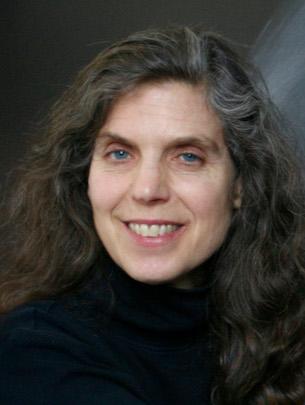
Yale University, PhD '90
BIOGRAPHY
Amy Dru Stanley is a historian of the United States, with particular interest in law, capitalism, freedom and unfreedom, human rights, the relationship between the household and economic life, and the historical experience of moral problems. Her work has appeared in scholarly books and journals, as well as in the New York Times, the Washington Post, the Nation, Dissent, Slate, and Jacobin. She has received the Quantrell Award for Excellence in Undergraduate Teaching and the Faculty Award for Excellence in Graduate Teaching and Mentoring. In 2018, she was the jury chair for the Pulitzer Prize in history.
Recent Research / Recent Publications
The Antislavery Ethic and the Spirit of Commerce: An American History of Human Rights. Cambridge, MA: Harvard University Press, forthcoming.
From Bondage to Contract: Wage Labor, Marriage and the Market in the Age of Slave Emancipation. Cambridge: Cambridge University Press, 1998.
- Frederick Jackson Turner Prize, 1999. (For the best first book in US History, awarded by the Organization of American Historians.)
- Morris D. Forkosch Award, 1999. (For the best book in intellectual history.)
- Avery O. Craven Award, 1999. (For the best book on the era of the Civil War and Reconstruction, awarded by the Organization of American Historians.)
- Frederick Douglass Prize, 1999, honorable mention. (For the best book on the history of slavery.)
- “The Free Sea: An Antislavery Idea of Human Rights,” in Cambridge History of Human Rights, edited by Jennifer Pitts and Daniel Edelstein, 2025.
- "The Sovereign Market and Sex Difference: Human Rights in America." In American Capitalism: New Histories, edited by Sven Beckert and Christine Desan. New York: Columbia University Press, 2018.
- "Histories of Capitalism and Sex Difference." Journal of the Early Republic 36, no. 2 (Sum. 2016).
- "Slave Emancipation and the Revolutionizing of Human Rights." In The World the Civil War Made, edited by Greg Downs and Kate Masur. Chapel Hill: University of North Carolina Press, 2015.
- “Contract.” In Keywords for American Cultural Studies, 2nd ed., edited by B. Burgett and G. Hendler. New York: New York University Press, 2014.
- "Slave Breeding and Free Love: An Antebellum Argument over Slavery, Capitalism, and Personhood." In Capitalism Takes Command, edited by Michael Zakim and Gary Kornblith. Chicago: University of Chicago Press, 2012.
- "Instead of Waiting for the Thirteenth Amendment: The War Power, Slave Marriage, and Inviolate Human Rights." American Historical Review 115, no. 3 (June 2010).
- "When We Were Young." In Wayne F. Miller: Photographs 1942–1958, edited by Stephen Daiter. Brooklyn: Powerhouse Books, 2008.
- "Wages, Sin, and Slavery: Some Thoughts on Free Will and Commodity Relations." Journal of the Early Republic 24 (Sum. 2004).
- "Dominion and Dependence in the Law of Freedom and Slavery." Law & Social Inquiry 28, no. 3 (Aut. 2003).
- "Marriage, Property, and Ideals of Class." In Blackwell's Companion to American Women's History, edited by Nancy Hewitt. Oxford: Blackwell Press, 2002.
- "The Right to Possess All the Faculties that God Has Given: Possessive Individualism, Slave Women, and Abolitionist Thought." In Moral Problems in American Life, edited by Lewis Perry and Karen Halttunnen. Ithaca, NY: Cornell University Press, 1999.
- "'We Did Not Separate Man and Wife, But All Had to Work': Freedom and Dependence in the Aftermath of Slave Emancipation" in Terms of Labor: Slavery, Serfdom, and Free Labor, edited by Stanley Engerman, Stanford University Press, 1999.
- "Home Life and the Morality of the Marketplace: Slavery and Freedom, Women and Men." In The Market Revolution in America, edited by Melvyn Stokes. Charlottesville: University of Virginia Press, 1996.
- "Beggars Can't Be Choosers: Compulsion and Contract in Postbellum America." Journal of American History 78, no. 4 (Mar. 1992).
- "Conjugal Bonds and Wage Labor: Rights of Contract in the Age of Emancipation." Journal of American History 75, no. 2 (Sept. 1988).
- Writes "Freedom for Sale" for Dissent Magazine on academic freedom and American history teaching
- Quoted in the Globe and Mail article, "Donald Trump has taken aim at what he calls the ‘woke’ view of American history"
- Quoted in the NYT article, "Juneteenth Reminds Us to Think About Economic Freedom, Not Just Legal Liberty"
- Quoted in the Washington Post on polarization, the history of race in the US, and the GOP
- Comments on the Florida Board of Education's guidelines on teaching Black history in Newsweek
- Co-writes with Craig Becker for the New York Times on Amazon's opposition to mail-in ballot unionization votes
- Writes for the Washington Post on the Commerce Clause and pandemic liability protection for businesses
- Quoted in the Burlington Free Press on the history of the Confederate Flag
- Quoted in the Pittsburgh Post-Gazette on the meaning of Chicago 1968
- Chairs 2018 Pulitzer Prize for History Jury
- Writes for Slate on the abolition of slavery, theatergoing, and the right to happiness
- Named an OAH Distinguished Lecturer
- Kyle Volk, PhD'08, Praises Stanley's Scholarship on the Oxford University Press blog
- Participates on Yale Panel on the 14th Amendment
- Amy Dru Stanley and Jonathan Levy Embark on New Study of the Economy
- Coorganizes "Human Trafficking, Labor Migration, and Migration Control in Comparative Historical Perspective" conference, Pozen Family Center for Human Rights
- Writes for the New York Times Opinionator blog on the Civil War Enlistment Act
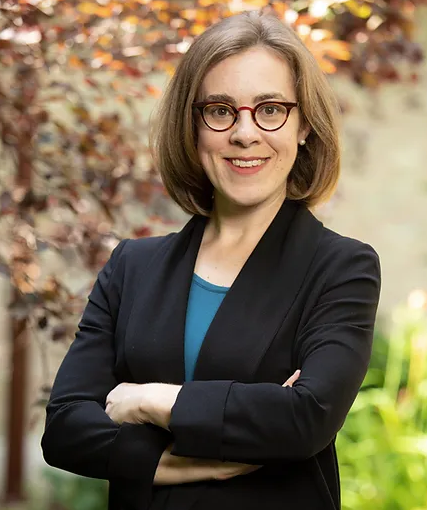
Yale University, PhD '09
BIOGRAPHY
I am an historian of modern Russia, with a special interest in nineteenth- and twentieth-century politics, culture, and ideas. My work explores how Russia's peculiar political institutions—and its status as a multiethnic empire—shaped public opinion and political cultures. It also interrogates Russia's relationship with the outside world, asking where the Russian experience belongs in the broader context of European and global history. In addition, I am interested in the theory and practice of the digital humanities.
I am currently working on a new history of the origins of the Protocols of the Elders of Zion written for a popular audience. This book offers a new account of how this notorious text came to be, and it asks what history's greatest conspiracy theory can tell us about the present moment, when conspiratorial thinking is again on the rise in society and politics.
My most recent book, Utopia’s Discontents: Russian Exiles and the Quest for Freedom, 1830–1930, was published by Oxford University Press in 2021. It is the recipient of the 2022 Wayne S. Vucinich Book Prize from ASEEES, which recognizes the most important contribution in any discipline of Slavic studies. The book provides the first synthetic account of Europe's "Russian colonies"—boisterous and politically fractious communities formed by exiles from the Russian empire that emerged across the continent in the nineteenth and early twentieth centuries. The book treats the "Russian colonies" as utopian communities in which radical activists worked to transform social relations and individual behavior, and it explores how these unique spaces influenced Russian political imaginaries as well as the culture of their host societies. Ultimately, the project offers a bold reassessment of Russia's relationship with Europe, the origins of the Russian revolution, and the creation of the Bolshevik regime.
My first book, Children of Rus’: Right-Bank Ukraine and the Invention of a Russian Nation, was published by Cornell University Press in 2013 and released in paperback in 2017. Children of Rus' argues that it was on the extreme periphery of the tsarist empire—a region that today is located at the very center of the independent nation of Ukraine—that Russian nationalism first took shape and assumed its most potent form. The book reconstructs how nineteenth-century provincial intellectuals came to see local folk customs as the purest manifestation of an ancient nation that unified all the Orthodox East Slavs, and how they successfully propagated their ideas across the empire through lobbying and mass political mobilization. In addition, it reconceptualizes state-society relations under tsarism, showing how residents of a diverse and contested peripheral region managed to shape political ideas and identities across Russia—and even beyond its borders. Children of Rus' was named a Choice Outstanding Academic Title for 2013.
My current research is enriched by technology, and I am interested in thinking through how historians can use digital tools to open new avenues for exploration and to communicate their findings to other scholars and the general public. I am particularly interested in using geo-spatial analysis to analyze flows of people, ideas, and commodities over time and across space. For examples of my (ongoing) work in digital cartography, see my Utopia's Discontents website in development and my study of émigré publications.
I have held research fellowships at Columbia, Harvard, and the Cullman Center for Scholars and Writers at the New York Public Library. My research has been funded by ACLS, IREX, Fulbright-Hays, and the NEH.
I am represented by Kathleen Anderson (kathleen@andersonliterary.com) of Anderson Literary Management.
Recent Research / Recent Publications
- Utopia’s Discontents: Russian Émigrés and the Quest for Freedom, 1830s-1930s, Oxford University Press, 2021. Awarded the 2022 Wayne S. Vucinich Prize.
- "'The Franco-Russian Marseillaise': International Exchange and the Making of Anti-Liberal Politics in Fin-de-Siècle France." Journal of Modern History 89, no. 1 (Mar. 2017): 39–78.
- "Children of Rus’: Nationalist Imaginations in Right-Bank Ukraine." In The Future of the Past: New Perspectives in Ukrainian History, edited by Serhii Plokhy. Cambridge, MA: Harvard University Press, 2016.
- "Making and Breaking the Russian Empire: The Case of Kiev’s Shul’gin Family." In Imperiale Biographien: Elitekarrieren im Habsburger, Russischen und Osmanischen Vielvölkerreich (1850–1918), edited by Malte Rolf and Tim Buchen, 178–98. Munich: Oldenbourg-Verlag, 2015.
- "Intimacy and Antipathy: Russian-Ukrainian Relations in Historical Perspective." Kritika 16, no. 1 (Win. 2015): 121–28.
- Children of Rus': Right-Bank Ukraine and the Invention of a Russian Nation. Ithaca, NY: Cornell University Press, 2013.
- "Modernist Visions and Political Conflict in Late Imperial Kiev." In Races to Modernity: Metropolitan Aspirations in Eastern Europe, 1890–1940, edited by Jan C. Behrends and Martin Kolrausch. New York: Central European Press, 2014.
- "Ukrainophile Activism and Imperial Governance in Russia's Southwestern Borderlands." Kritika 13, no. 2 (Spr. 2012): 301–26.
- "Migration, Mobility, and Political Conflict in Late Imperial Kiev." In Russia on the Move: Essays on the Politics, Society and Culture of Human Mobility, 1850–Present, edited by John Randolph and Eugene Avrutin. Urbana: University of Illinois Press, Studies of World Migrations Series, 2011.
- Writes op-ed on seizing Russian oligarchs' wealth for The Atlantic
- Interviewed for Meduza on Putin's presentation of Ukrainian and Soviet history
- Quoted in USA Today article on how historians see the invasion of Ukraine
- Quoted in Politifact on the history of Russian imperialism
- Interviewed for The World on the entangled histories of Russia and Ukraine
- Writes op-ed on immigration for The Washington Post
- Quoted in Chicago Tribune article on the meaning of "concentration camp"
- Named a 2018–19 Cullman Center Fellow at the New York Public Library
- Review of AHA session on "History and Historians in the Ukraine Crisis" by Sarah Fenton
- Quoted in National Geographic article on Ukrainian-Russian conflict
- Children of Rus' reviewed in the Moscow Times
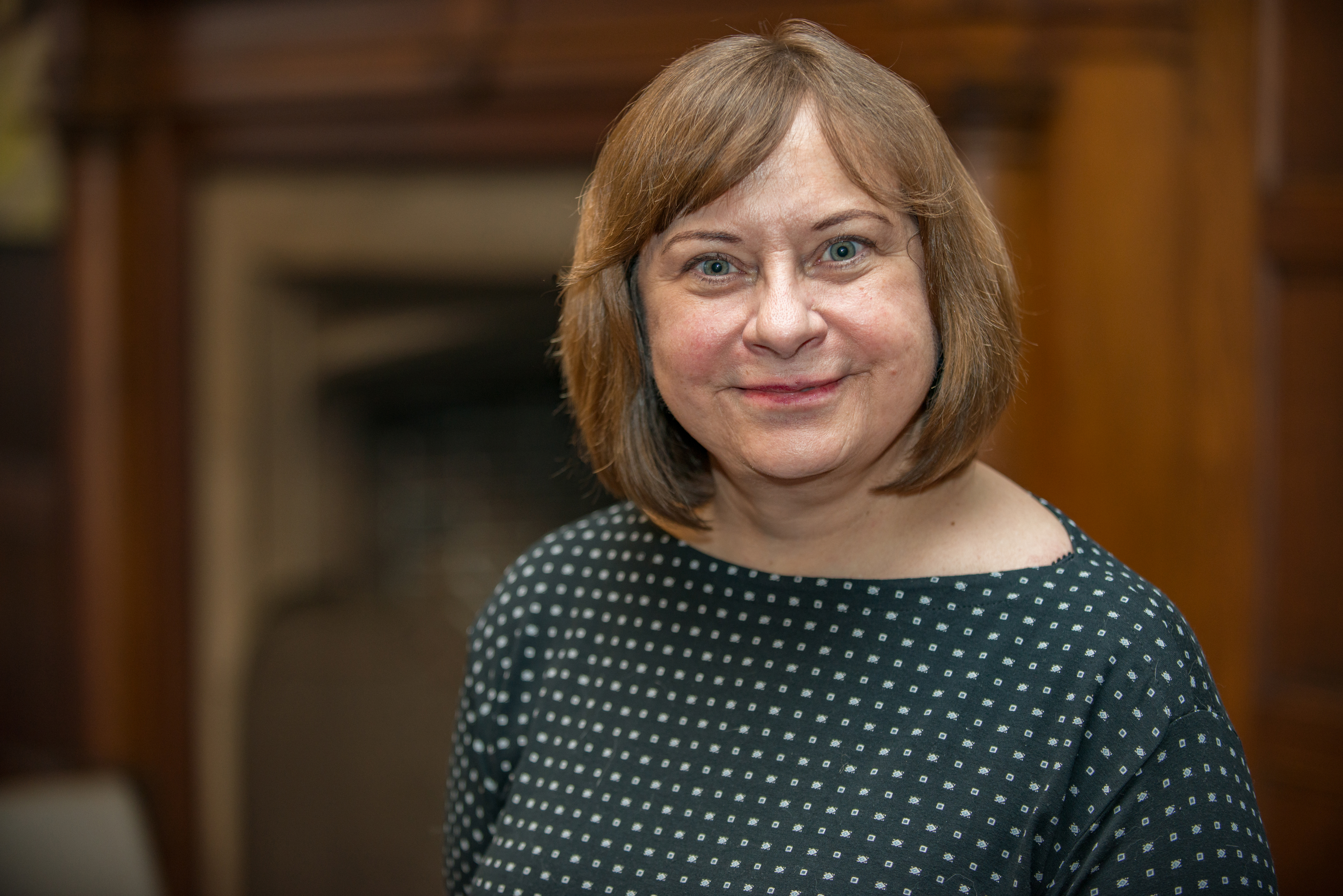
University of Chicago, PhD '94
BIOGRAPHY
I am a historian of Japan's "long" nineteenth century (1780s–1910s). I am interested in the social history of intellectual and cultural practices and the continuities and ruptures between what conventional periodization terms Japan's "early modern" and "modern" eras. My first book, Before the Nation: Kokugaku and the Imagining of Community in Early Modern Japan (Duke, 2003) examined the nativist discourse of the late Tokugawa period. It traced the efforts of early nineteenth century intellectuals to define the nature of "Japan" as a locus of personal and cultural identity and the appropriation of aspects of this discourse by modern scholars who sought to define the contours of modern Japanese nationalism.
With the completion of this project I turned to a new set of questions related to the history of the body as it came to be conceptualized within medical and legal discourses. My second monograph, Kingdom of the Sick: Leprosy, Citizenship, and Japan (University of Hawaii Press, 2019) explores the long history of leprosy in Japan from the late medieval period when it was identified as a "karmic retribution disease" to the modern period when attempts to control the disease prompted the creation of a system of public sanitaria. I argue that in the modern era leprosy, a particularly stigmatized disease, became the object of an intense debate on the place of the chronically ill and disabled within the Japanese nation.
Gender is an important category of analysis within my work and I have a long-standing interesting in issues of reproductive health and reproductive rights. Together with Barbara Brooks, I co-edited Gender and Law in the Japanese Imperium (Hawaii, 2014). I authored the introduction and contributed an essay that examined the criminalization of abortion and infanticide in late nineteenth-century Japan.
I am currently working on two additional monographs. The first explores the intellectual and professional world of an early modern doctor who practiced in the villages in Akita in the 1830s and '40s. It seeks to explore the impact of new forms of knowledge, techniques, and materia medica for medical practice and considers the implications of the "medical revolution" of the early nineteenth century for the state-sponsored introduction of Western biomedicine after 1870. The second builds on my research on medical commodities, alternative therapies, and psychiatric practice and explores the impact of the new medical marketplace on ideas about mental health in Japan from c. 1880–1940.
In recent years, I have become interested in the use of digital tools for historical research, specifically ArcGIS and text mining. I utilized ArcGIS in my research on leprosy to explore the place of private leprosy hospitals and clinics in the cityscape of late nineteenth-century Tokyo. I am working on a digital project called "Mapping Medical Tokyo" that seeks to visualize and analyze the spatial dimensions of health, disease, and medical care in the Meiji-era city.
My work has been supported by the Fulbright-Hays Fellowship, the IIE Fulbright, the Japan Foundation, the Japan Society for the Promotion of Science, and the National Endowment for the Humanities.
Courses
-
Gender and Sexuality in World Civilizations (undergraduate)
-
Edo/Tokyo: Society and the City in Japan (undergrad/grad)
-
Medicine and Culture in East Asia (undergrad/grad)
-
Contact Zones: Treaty Ports in Nineteenth Century Japan (undergrad/grad)
-
Gender and Japanese History (undergrad/grad)
Recent Research / Recent Publications
-
Kingdom of the Sick: A History of Leprosy and Japan. Honolulu: University of Hawaii Press, 2019.
-
Gender and Law in the Japanese Imperium, co-editor with Barbara J. Brooks. Honolulu: University of Hawaii Press, 2014.
-
Before the Nation: Kokugaku and the Imagining of Community in Early Modern Japan. Durham, NC: Duke University Press, 2003.
-
"The Japanese Patent Medicine Trade in East Asia: 'Women's Medicines and the Tensions of Empire." In Gender, Health, and History in East Asia, edited by Izumi Nakayama and Angela Leung. Hong Kong: Hong Kong University Press, 2018.
-
"History, Testimony, and the Afterlife of Quarantine: The National Hansen's Disease Museum of Japan." In Quarantine: Local and Global Histories, edited by Alison Bashford, 210–29. London: Palgrave, 2016.
-
"A Village Doctor Reads the Shang Han Lun: Medical Empiricism in Late Tokugawa Japan." In Antiquarianism, Language, and Medical Philology, edited by Benjamin Elman, (Leiden: Brill, 2015).
-
"Rethinking 'Leprosy Prevention': Entrepreneurial Doctors, the Meiji Press, and the Civic Origins of Biopolitics." Journal of Japanese Studies 38, no. 2 (Sum. 2012): 297–323.
-
"Marketing Health and Beauty: Advertising, Medicine, and the Modern Body in Meiji-Taisho Japan." In East Asian Visual Culture from the Treaty Ports to World War II, edited by Hans Thomsen and Jennifer Purtle, 179–202. (Chicago: Paragon Books, 2009).
-
"Marketing 'Women's Medicines': Gender, OTC Herbal Medicines, and Medical Culture in Modern Japan," Asian Medicine 7, no.1 (2009).
-
“Nanayama Jundō at Work: A Village Doctor and Medical Knowledge in Nineteenth-Century Japan.” East Asian Science, Medicine, and Technology 29 (Aut. 2008): 61–82.
-
Publishes Kingdom of the Sick: A History of Leprosy and Japan (Hawaii Press, 2019)
-
Co-edits Gender and Law in the Japanese Imperium (Hawaii, 2014) with Barbara J. Brooks
-
Discusses the history of leprosy in Japan on ABC Radio Australia [15 mins]
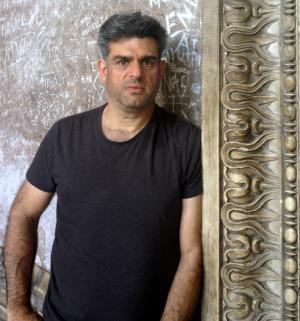
Harvard University, PhD '96
BIOGRAPHY
Emilio Kourí's main scholarly interest is in the history of rural Mexico since Independence, including society, economy, politics, culture, and the law. He is the author of A Pueblo Divided: Business, Property, and Community in Papantla, Mexico. It tells the story of the strife-ridden transformation of rural social relations in the Totonac region of Papantla during the course of the nineteenth century, paying particular attention to how the progressive development of a campesino-based international vanilla economy changed and ultimately undermined local forms of communal landholding. A Pueblo Divided received the 2005 Bolton-Johnson Prize from the Conference on Latin American History (CLAH) and the 2005 Erminie Wheeler-Voegelin Prize (Honorable Mention) from the American Society for Ethnohistory. He is also the editor of En busca de Molina Enríquez: cien años de Los Grandes Problemas Nacionales and co-editor of Revolución y exilio en la historia de México: Homenaje a Friedrich Katz.
He is at work on a three-volume history of communal landholding in Mexico. Volume One examines the evolving meaning and practice of communal land tenure in Mexican villages during the 18th and 19th centuries, focusing on changes brought about by agricultural commerce and commodification, population growth and mobility, socio-economic differentiation within and beyond villages, and the haphazard implementation of a multiplicity of liberal disentailment laws. Volume Two focuses on the Zapatista movement of the Mexican Revolution, offering a revisionist interpretation of its agrarian and political goals and practices and of its place in the land reform that would follow its demise. Volume Three explains the legal, political, and ideological origins of the collective land-grant community (ejido) created by the Mexican Revolution between 1915 and 1934. By 1992, when a constitutional amendment ended the redistribution program, more than two thirds of Mexico’s arable lands and forests were at least nominally in the hands of these land-grant communities—the most extensive state-managed land tenure transformation in the history of modern Latin America. Historians have long regarded the communal character given to ejido property as a return to forms of social organization rooted in Mexico’s indigenous past, and have considered it to be the fulfillment, at least in principle, of what villagers like Emiliano Zapata had long demanded and fought for. Against prevailing interpretations, Volume Three argues that the new ejido of the Revolution was not what country people (and especially the Zapatistas) had battled for. Rather, it was the piecemeal product of idealized notions of indigenous communal organization and historical practice hastily contrived by the "progressive" elites who won the Revolution and who were then compelled in fits and starts to make expedient agrarian reforms in order to build sorely needed popular political allegiances.
He teaches classes and seminars on land reforms, rural ecologies and social movements, indigenous societies, and the history of agrarian thought, as well as general courses on Latin American and Latino/a history, and is director of the Katz Center for Mexican Studies.
Recent Course Offerings
-
Tropical Commodities in Latin America
-
Latin American History Seminar
-
Zapatista Social Movements, Old and New
-
Agrarian Reform in Twentieth-Century Mexico
-
The History of Mexico, 1876 to the Present
-
Pre-Columbian and Early Colonial Latin America
-
US Latinos: Origins and Histories
-
Latin American Civilizations
Recent Research / Recent Publications
- "On the Mexican Ejido." Humanity 11.2.
- “Chico Franco y Nicolás Zapata.” Revista NEXOS (August 2019).
- “El alma perdida del Plan de Ayala.” Revista NEXOS (July 2019).
- "La caja de hojalata." Revista NEXOS (June 2019).
- "El ejido de Anenecuilco." Revista NEXOS (May 2019).
- "La historia al revés." Revista NEXOS (Apr. 2019).
- "Sobre la propiedad comunal de los pueblos: De la Reforma a la Revolución." Historia Mexicana (264) 66, no. 4 (Apr.–June 2017): 1,923–60.
- "La promesa agraria del artículo 27.” Revista NEXOS (Feb. 2017).
- "La invención del ejido." Revista NEXOS (Jan. 2015).
- "Claroscuros de la reforma agraria mexicana." Revista NEXOS (Dec. 2010).
- Revolución y exilio en la historia de México: Homenaje a Friedrich Katz. Coedited with Javier Garciadiego. Mexico: Ediciones Era, coedition with the Colegio de México and the Katz Center for Mexican Studies, 2010.
- Editor. En busca de Molina Enríquez: cien años de Los Grandes Problemas Nacionales. Mexico: coedition with the Colegio de México and the Katz Center for Mexican Studies, 2009.
- "Manuel Gamio y el Indigenismo de la Revolución Mexicana." In Historia de los intelectuales en América Latina, vol 2, edited by Carlos Altamirano. Buenos Aires: Katz Editores, 2010
- "John Womack: sobre historia e historiadores." Revista Temas (2008). Interview.
- "Aspectos económicos de la desamortización de las tierras de los pueblos." In España y México, ¿Historias económicas paralelas?, edited by Rafael Dobado, Aurora Gómez Galvarriato, and Graciela Márquez. Mexico City: Fondo de Cultura Económica, 2007.
- A Pueblo Divided: Business, Property, and Community in Papantla, Mexico. Stanford: Stanford University Press, 2004.
- "Interpreting the Expropriation of Indian Pueblo Lands in Porfirian Mexico: The Unexamined Legacies of Andrés Molina Enríquez." The Hispanic American Historical Review 82, no. 1 (Feb. 2002).
- "El comercio de exportación en Tuxpan, 1870–1900." In El siglo XIX en las Huastecas, México, edited by Antonio Escobar Ohmstede and Luz Carregha Lamadrid. Mexico City: Centro de Investigaciones y Esudios Superiores en Antropología Social, 2002.
- "Economía y comunidad en Papantla: reflexiones sobre 'la cuestión de la tierra' en el siglo XIX." In Estructuras y formas agrarias en México: del pasado al presente, edited by Antonio Escobar Ohmstede and Teresa Rojas Rabiela, 197–214. Mexico City: Centro de Investigaciones y Esudios Superiores en Antropología Social, 2001.
- "La vainilla de Papantla: Agricultura, comercio y sociedad rural en el siglo XIX." Signos Históricos 3 (2000).
- "Lo agrario y lo agrícola: reflexiones sobre el estudio de la historia rural posrevolucionaria." Boletín del Archivo General Agrario 3 (July 1998).
- Joins panel discuss on Mexico's presidential election, Chicago Council on Global Affairs, Jan. 28, 2019
- Delivers a talk on "Friedrich Katz Agraian Mexico," Freie Universität Berlin
- Discusses Article 27 of the Constitution of Mexico, Revista NEXOS, Feb. 2017
- Discusses agrarian reforms, "La invención del ejido," iRevista NEXOS, Jan. 2015
- Hosts the XIV Reunión Internacional de Historiadores de México as director of the Katz Center for Mexican Studies, University of Chicago
- Advised curators on the exhibit, "Researching Mexico: University of Chicago Field Explorations in Mexico, 1896–2014," Special Collections. Seonaid Valiant, PhD '14, cocurated the show.
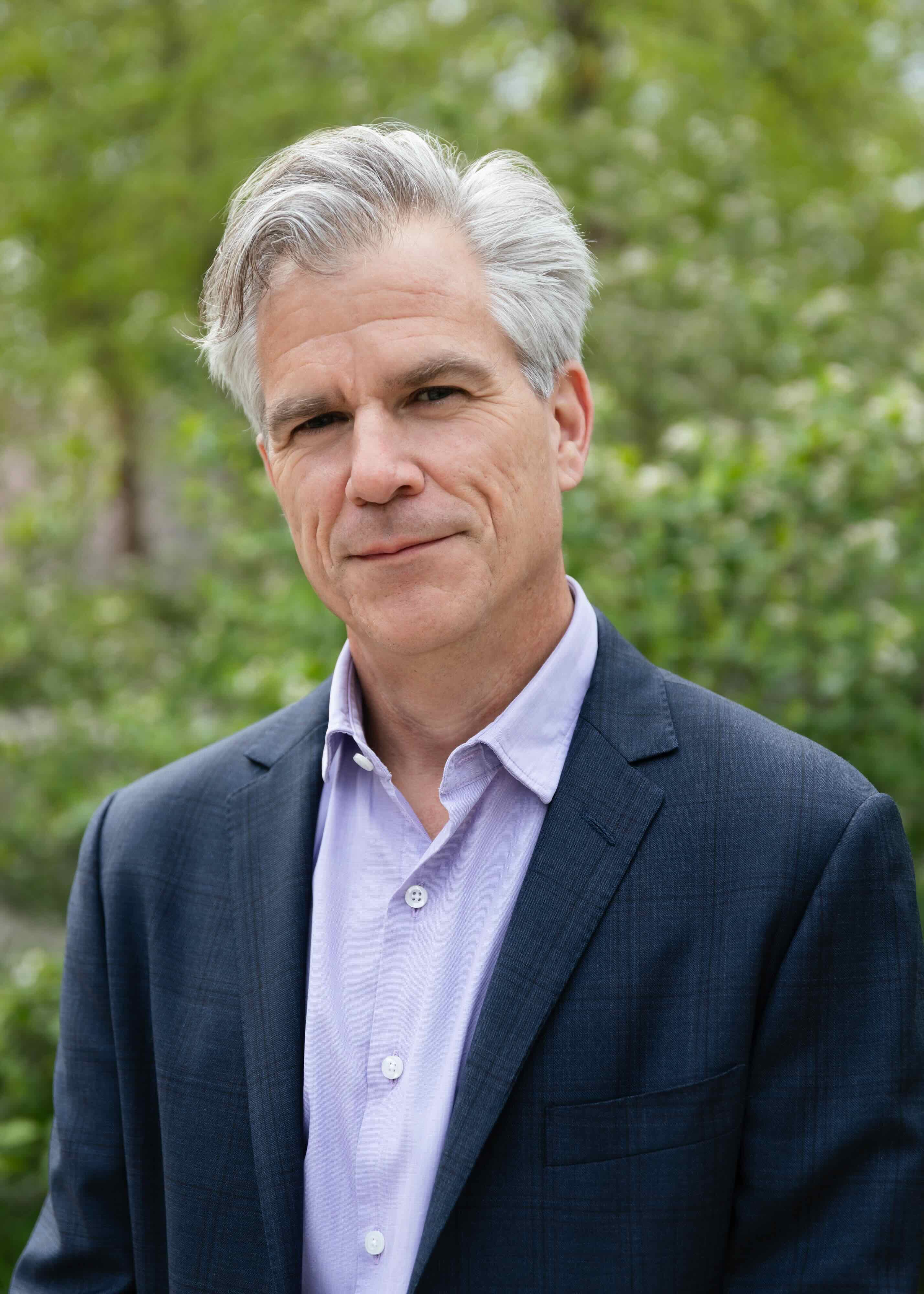
Columbia University, PhD '02
BIOGRAPHY
Paul Cheney is an historian of Europe with a specialization in old regime France and its colonial empire. Before beginning his PhD training in history at Columbia University, he studied political economy at the New School for Social Research. He has taught at Columbia University, the European College of Liberal Arts (Berlin), and the Queen's University of Belfast.
The unifying element of Professor Cheney’s work is an interest in early modern capitalism, and in particular the problem of how modern social and political forms gestated within traditional society. Old regime France serves as an excellent case study in this problem because of the way in which it combined real economic dynamism with deep-seated political and social impediments to growth. He addresses France’s integration into a globalized early modern economy in a methodology diverse way, drawing on intellectual, economic, and social history. His first book, Revolutionary Commerce: Globalization in the French Monarchy (Harvard University Press, 2010), examined how French philosophes, merchants, and administrators understood the adaptability of the French monarchy to the modernizing forces of primitive globalization. Currently, he is working on a second book entitled, Cul de Sac: Patrimony, Capitalism, and Slavery in French Saint-Domingue (University of Chicago Press, 2017), a micro-history of one plantation in France’s richest colony. He has published in such journals as The William and Mary Quarterly, Past & Present, Dix-Huitième siècle, and Les Annales historiques de la révolution française.
Recent Graduate Courses
- The French Revolution
- Old Regime France
- Atlantic Worlds, c. 1700–1800
- Political Economy and the Invention of Society, c. 1680–1830
- Montesquieu and the Enlightenment, with Robert Morrissey, Department of Romance Languages and Literatures
- Revolutionary Culture in Eighteenth-Century France and America, with Eric Slauter, Department of English
Recent Research / Recent Publications
- Cul de Sac: Patrimony, Capitalism, and Slavery in French Saint-Domingue. Chicago: University of Chicago Press, 2017. Published in French as Cul de Sac: Une Plantation à Saint-Domingue au XVIIIe siècle. Arthème Fayard, 2022.
- Revolutionary Commerce: Globalization and the French Monarchy. Cambridge, MA: Harvard University Press, 2010.
- “The Capitalism and Slavery Debate: Land, Labor, and Capital,” Critical Historical Studies 12, no. 1 (2025): 1–22.
- “Inheritance and Incest: Toward a Lévi-Straussian Reading of Montesquieu’s De l’esprit des lois,” History and Theory 64.1 (2025): 46–74. (open access)
- “Le Débat sur capitalisme et esclavage : un débat inachevé,” In Travail servile et dynamiques économiques XVIe-XXIe siècle, edited by Mendes, Almeida, Conchon, Anne, Alessandro Stanziani, and Myriam Cottias, 97–116. Paris: IGPDE-Comité pour l’histoire économique et financière de la France, 2024.
- “Political Economy,” in The Cambridge Companion to Montesquieu, eds. Keegan Callanan and Sharon Krause, Cambridge Companions to Philosophy (Cambridge University Press: 2023), 216-31. (Open access)
- "István Hont, the Cosmopolitan Theory of Commercial Globalization, and Twenty-First-Century Capitalism." Modern Intellectual History (15 March 2021): 1-29.
- "The French Revolution’s Global Turn and Capitalism’s Spatial Fixes." In "Forum: The French Revolution is Not Over." Special edition, Journal of Social History 52, no. 4 (Summer 2019).
- "Haiti's Commercial Treaties: Between Abolition and the Persistence of the Old Regime." In Balance of Power, Balance of Trade: the Politics of Commercial Treaties in the Eighteenth Century. Edited by Antonella Alimento and Koen Stapelbroek. London: Palgrave Macmillan, 2017.
- "Commerce." In The Cambridge Companion to the French Enlightenment. Edited by Daniel Brewer. Cambridge: Cambridge University Press, 2014. (Open access)
- "Aufklärung und die politische Ökonomie des Kolonialismus.” In Der moderne Staat und „le doux commerce”–Staat, Ökonomie und internationales System im politischen Denken der Aufklärung. Edited by Olaf Asbach. Baden-Baden: Nomos, 2014.
- With Alan Forrest, Lynn Hunt, Mathias Middel, and Karine Rance. "La révolution française à l'heure du Global Turn." Annales historiques de la Révolution française 374 (Dec. 2013). [link requires subscription access].
- With Loïc Charles. "The Colonial Machine Dismantled: Knowledge and Empire in the French Atlantic." Past and Present 219 (May 2013). [link requires subscription access]
- "A Colonial Cul de Sac: Plantation Life in Wartime Saint-Domingue, 1775-1783." Radical History Review: Special issue Haitian Lives /Global Perspectives 115 (Win. 2013): 45–54. [link requires subscription access]
- "A False Dawn for Enlightenment Cosmopolitanism? Franco-American Trade during the American War of Independence." The William and Mary Quarterly 63 (July 2006): 459–84. [link requires subscription access]
- "L'Histoire du commerce." In Le Cercle de Vincent de Gournay: savoirs économiques et pratiques administratives en France au milieu du xviii siècle. Edited by Loïc Charles, Frédéric Lefebvre, and Christine Théré. Paris: INED, 2011.
- "Finances, Philosophical History and the 'Empire of Climate': Enlightenment Historiography and Political Economy." Historical Reflections 31, no. 1 (2005): 141–67. [link requires subscription access]
- "Les économistes français et l'image de l'Amérique: l'essor du commerce transatlantique et l'effondrement du 'gouvernement féodal'." Dix-huitième siècle 33 (2001): 229–43.
- "Constitution and Economy in David Hume's Enlightenment." In David Hume's Political Economy. Edited by Margaret Schabas and Carl Wennerlind. London: Routledge, 2008.
- "Lumières écossaises." In Dictionnaire électronique Montesquieu. Edited by the École normale supérieure de Lyon, pour le compte de l’Institut d’histoire de la pensée classique. February 2008 (September 2013, 2nd ed.).
- Awarded the Society for French Historical Studies' 2018 Gilbert Chinard Prize for Cul de Sac.
- Receives NEH grant to conduct a summer seminar for college and university teachers in July 2018.
- Published Cul de Sac: Patrimony, Capitalism, and Slavery in French Saint-Domingue (Chicago, 2017)
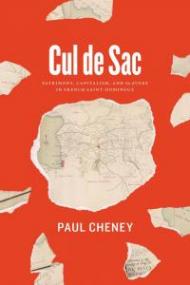
- Delivers plenary lecture at Oxford University, United Kingdom
- Discusses his latest research on Saint-Domingue/Haïti at Aarhus University
- Invited to be a visiting professor the Ecole des Hautes Etudes en Sciences Sociales, Centre de Recherches Historiques, spring 2016
- Organizes conference on "Political Economy in the Age of Enlightenment and Revolution: Interdisciplinary Approaches"
- Collaborates with Parisian scholar on Colonial Plantation Economy
- “The French Revolution,” radio interview on WGN Chicago, Extension 720, March 22, 2011.
